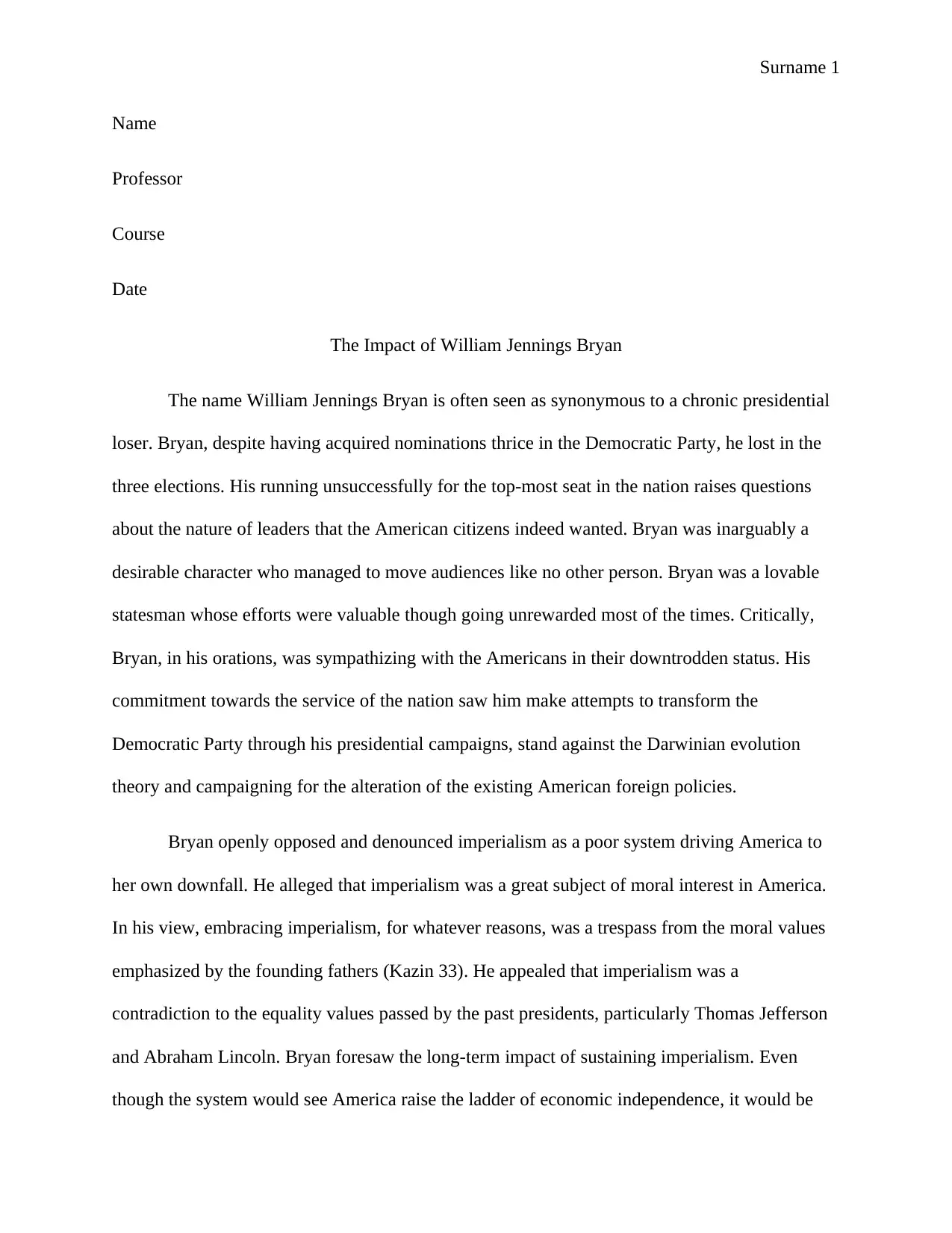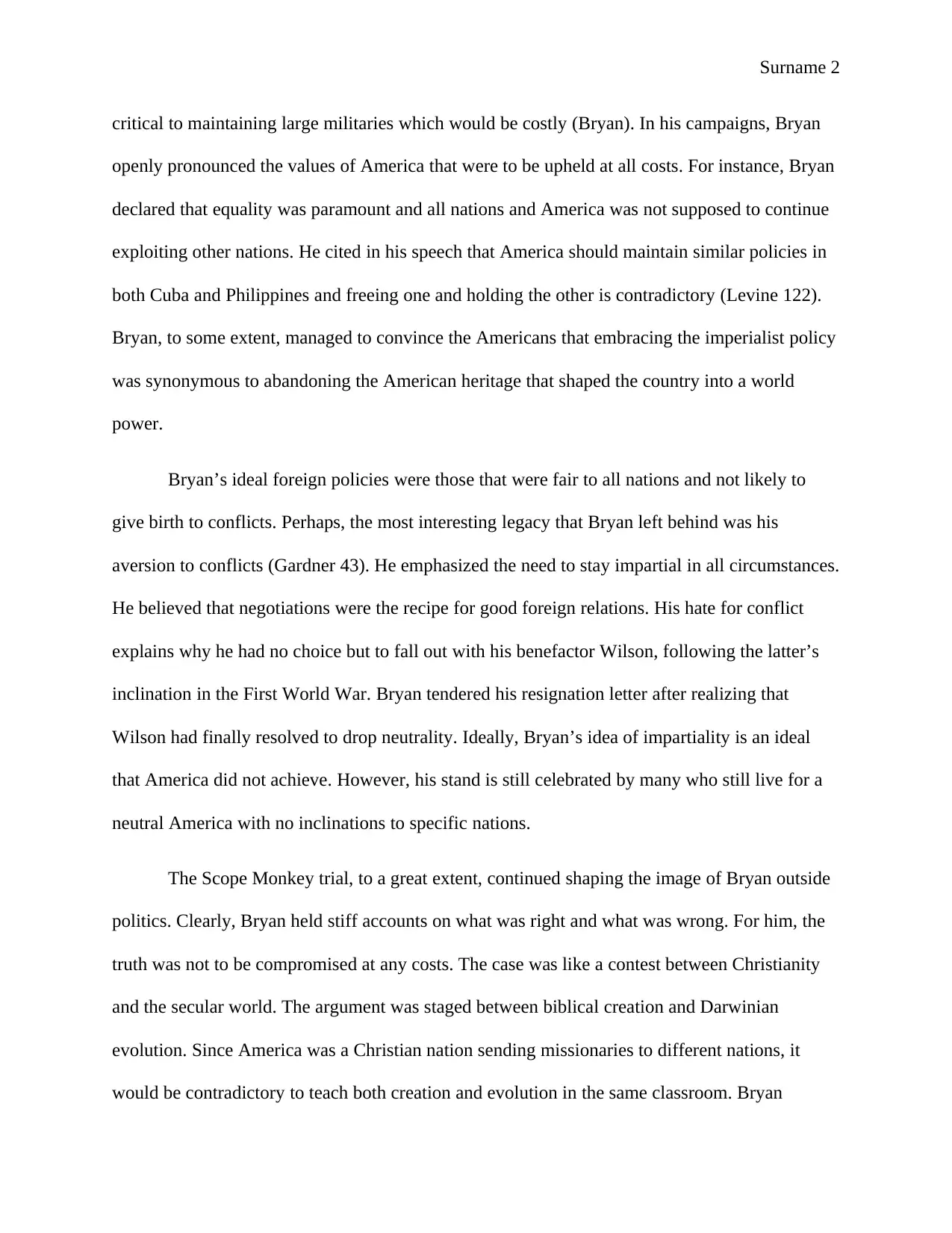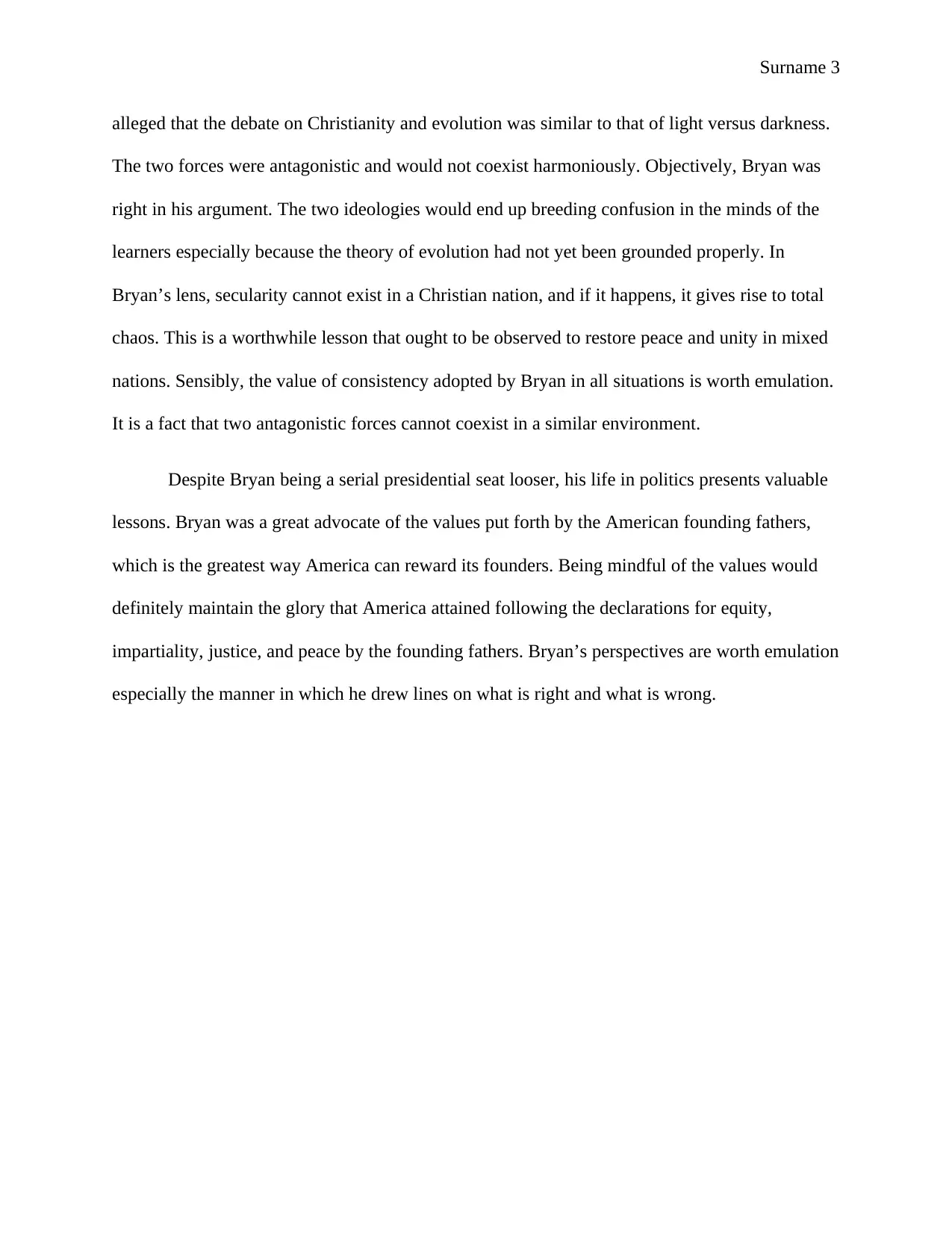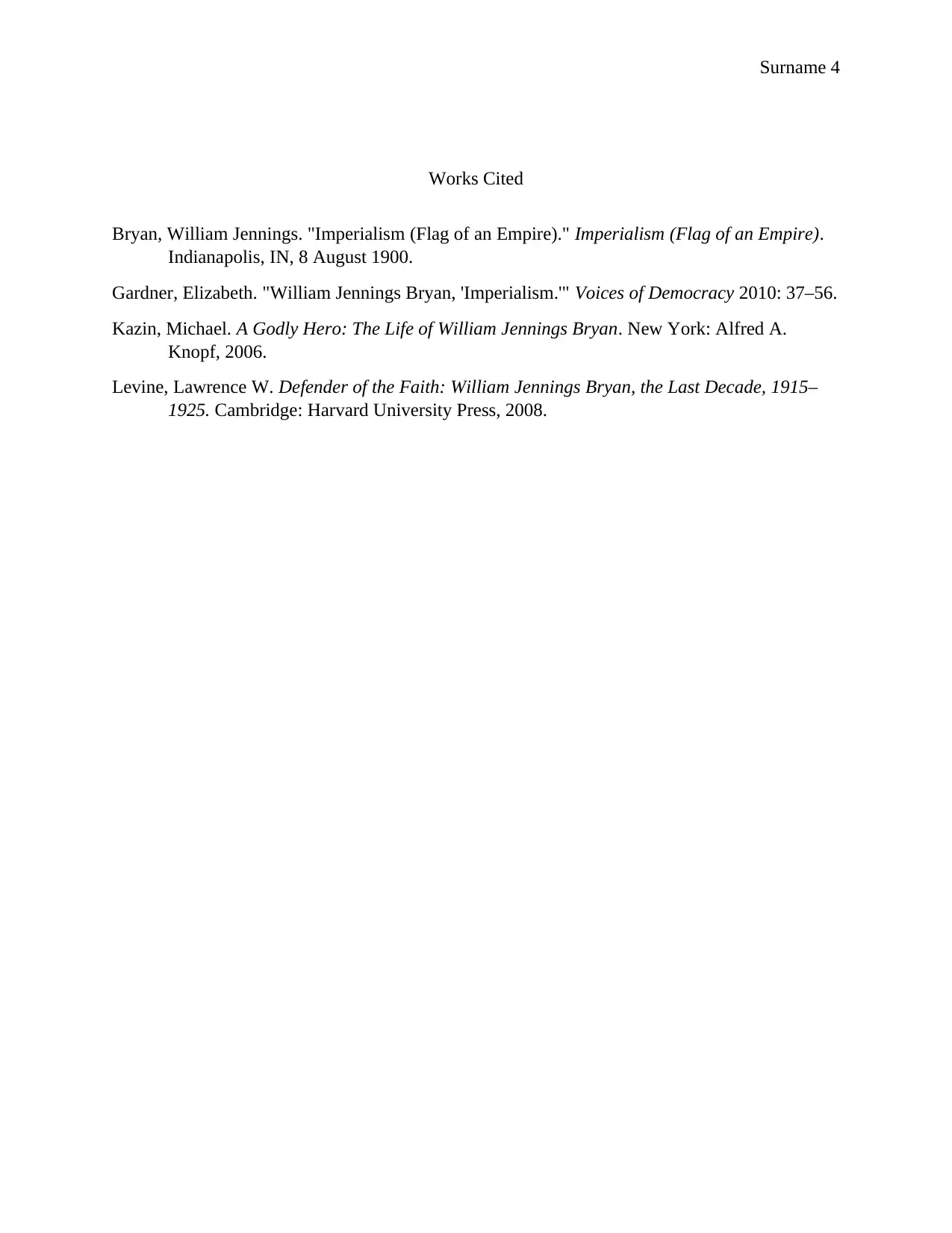A Comprehensive Study of William Jennings Bryan's Legacy and Impact
VerifiedAdded on 2022/10/15
|4
|986
|344
Essay
AI Summary
This essay examines the life and impact of William Jennings Bryan, a prominent figure in American history. It explores his political career, including his three unsuccessful presidential campaigns as the Democratic Party nominee, and analyzes his stances on key issues such as imperialism, foreign policy, and the theory of evolution. The essay highlights Bryan's opposition to imperialism, arguing that it contradicted American values, and his views on the importance of impartiality and negotiation in international relations. Furthermore, it discusses Bryan's role in the Scopes Trial, emphasizing his commitment to his beliefs and his perspective on the conflict between Christianity and secularity. The essay concludes by assessing Bryan's legacy, emphasizing his advocacy for American values and his influence on American politics and society, despite his electoral losses. The essay draws on various sources to provide a comprehensive understanding of Bryan's contributions to American history and his lasting impact on the nation.
1 out of 4







![[object Object]](/_next/static/media/star-bottom.7253800d.svg)